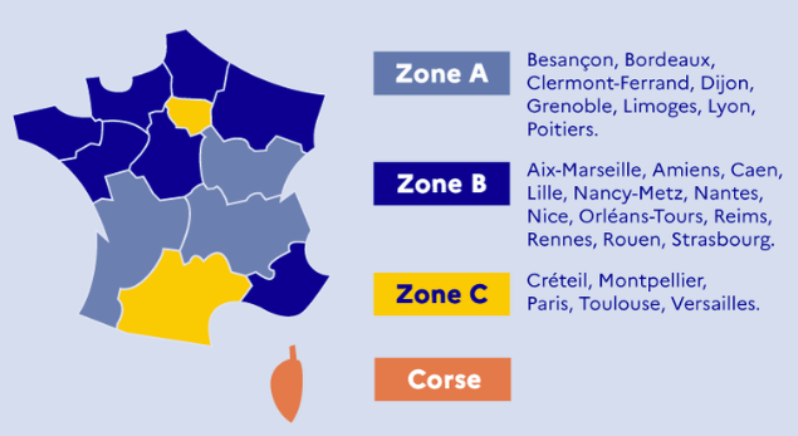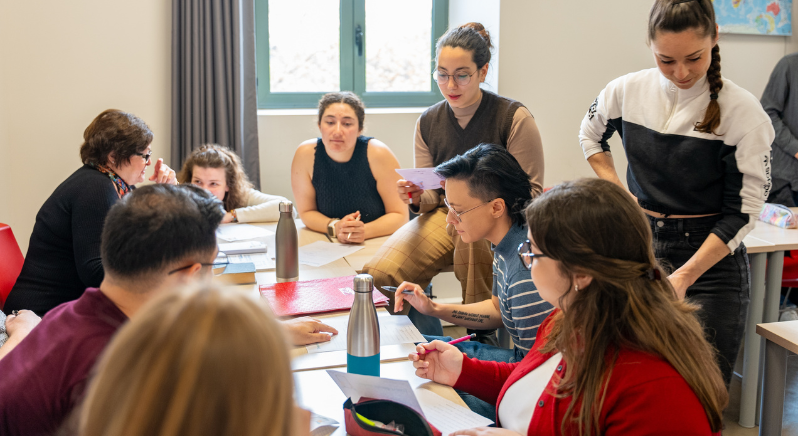Navigating the complexities of moving to a new country can be daunting, especially for international students. Among the myriad of things to consider, understanding the health insurance system of your host country is crucial. In France, this system is known as the Sécurité Sociale (SECU).
This article is designed to demystify the Sécurité Sociale requirements for students, addressing frequently asked questions such as enrollment necessity, costs, enrollment procedures, and steps to take if you decide to leave France or have not yet enrolled.
What is Sécurité Sociale?
Sécurité Sociale is France’s government-operated healthcare system, designed to provide residents and eligible foreigners, including international students, with access to healthcare services. It covers a wide range of healthcare expenses, such as doctor visits, hospital stays, and prescription medications, partially or fully.
Am I eligible for Sécurité Sociale?
As an international student, if you’re under 28 years old and enrolled in a higher education institution in France, you’re generally eligible for Sécurité Sociale. Students over 28 may have to look into private insurance options or specific arrangements depending on their situation.
Do I Have to Enroll in Sécurité Sociale?
For international students planning to live and study in France, enrolling in the Sécurité Sociale is not just a requirement; it’s a gateway to accessing comprehensive healthcare services. This ensures you’re covered for most health-related expenses, from doctor visits to hospital stays.
Do I Have to Pay for It?
Here’s the good news: access to the national health insurance system is free. However, you may still need to contribute a modest amount to a mutuelle (supplementary health insurance), although this is optional. This additional coverage can further reduce any out-of-pocket expenses for healthcare services not fully covered by the Sécurité Sociale.

How Do I Enroll?
Enrolling in the Sécurité Sociale is a straightforward process, primarily conducted online. Here’s a quick guide:
- Registration: Sign up via etudiant-etranger.ameli.fr official website.
- Form: Fill in the mandatory information: last name, first name(s); date of birth; country of birth, e-mail address, postal address in France, telephone number, start date of health insurance.
- Supporting Documents: Submit the following documents: passport, school enrollment certificate, bank account details, birth certificate, valid residence permit.
After submitting your application and documents, you’ll receive a temporary social security number, allowing you to access healthcare services. A permanent number will be provided upon the validation of your documents and insurance of your carte vitale. Keep the temporary social security number that has been automatically generated for you by the website, and print off your certificate of entitlement.
What is a Carte Vitale?
The Carte Vitale is the health insurance card of the French national healthcare system, Sécurité Sociale. It’s a crucial component for accessing healthcare services in France. The card is personal and contains all the essential information needed to process medical claims and reimbursements efficiently.

How Do I Renew My Sécurité Sociale Coverage Each Year?
If you’re continuing your studies in France, your Sécurité Sociale coverage is automatically renewed each academic year as long as you re-enroll in your institution. Ensure your information, especially your banking details and address, is up to date to avoid any disruptions in coverage or reimbursements.
I Haven’t Enrolled in Sécurité Sociale Yet. What Should I Do?
If you’re already living in France and realize you haven’t enrolled in the Sécurité Sociale, it’s crucial to take action immediately. Follow the enrollment steps mentioned above to ensure you’re covered. Delaying this process can lead to unnecessary stress and financial burden in the event of health issues.
What Healthcare Services Does Sécurité Sociale Cover?
Sécurité Sociale provides coverage for a comprehensive range of healthcare services, including general practitioner and specialist visits, hospitalization, maternity care, and prescription drugs. It typically covers a portion of these costs, with the possibility to cover the remaining amount through supplementary insurance.
Do I Need Supplementary Health Insurance Besides Sécurité Sociale?
While Sécurité Sociale covers a significant portion of healthcare costs, having a mutuelle (supplementary health insurance) is advisable to cover the remaining expenses not fully reimbursed. This is optional but can reduce out-of-pocket expenses for healthcare services.
Discover our partner travel and health insurance here: https://gogofrance.com/en/health-insurance-for-students-in-france/
How Do I Use My Sécurité Sociale for Healthcare Services?
Once enrolled, you’ll receive a temporary social security number, followed by a permanent one and a health insurance card (Carte Vitale). Present this card at appointments and pharmacies to access covered healthcare services and medications, with most of the costs directly billed to Sécurité Sociale.

Can I Keep my Sécurité Sociale Coverage if I Travel or Leave France?
Your coverage primarily applies within France. For short trips within the European Union, you can obtain a European Health Insurance Card (EHIC) for emergency services. If you leave France permanently or for an extended period, your Sécurité Sociale coverage doesn’t automatically continue, but you don’t need to formally cancel it.
Do I Have to Cancel If I Leave France?
If you decide to leave France, either temporarily or permanently, you do not need to formally cancel your Sécurité Sociale coverage. However, it’s important to update your address in your account to receive any pending reimbursements. Should you return to France in the future for studies or work, you can reactivate your coverage.











